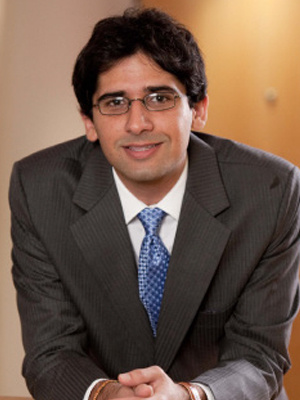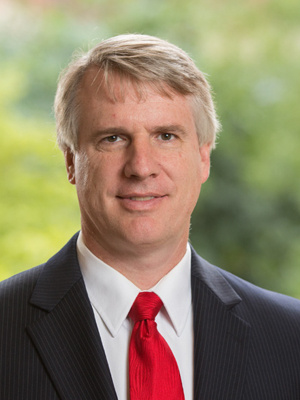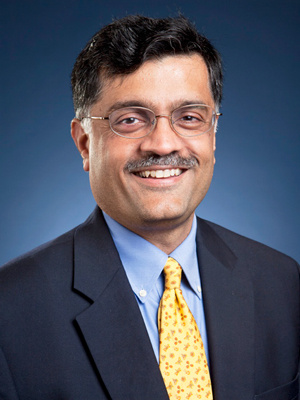Ross faculty members are pioneering research in India that is shaping the advancement of business and the economy as a whole. Profiled here are three significant efforts.

Achyuta Adhvaryu, Asst. Professor of Business Economics & Public Policy
India is home to 13 of the 20 world cities with the worst air pollution. The focus of Adhvaryu’s research is on the economic costs of such pollution. After studying the impact of pollution levels on worker productivity in a garment factory in Bangalore, Adhvaryu identified two strategies to mitigate the extent to which poor air quality reduces worker efficiency. His analysis shows that two manager qualities - tenure and relatability to workers - are especially influential in counteracting the way ambient pollution levels decrease worker output.
In another study, Adhvaryu found that replacing fluorescent lighting with LED lighting provided more than four times greater productivity in workers and energy savings, because LED lights emit seven times less heat than fluorescent lights. His findings show that by replacing standard fluorescent lighting with LEDs, firms can mitigate the effects of temperature by 75 percent and increase efficiency and output. Adhvaryu collected data from 29 garment factories in India that gradually introduced LED lighting on production lines over four years.

Paul Clyde, President of the William Davidson Institute; Tom Lantos Professor of Business Administration; and the Movses and Maija Kaldjian Collegiate Lecturer of Business Economics and Public Policy
Dr. Clyde is an expert on healthcare delivery in emerging markets and has focused efforts on India. Over the past 15 years, he has advised or run more than 50 healthcare projects in 12 emerging markets and collaborated with the U-M Medical School, School of Nursing, School of Public Health, and Law School. His aim is to integrate perspectives and develop a financially sustainable healthcare business model that serves the poor. He has also worked on projects with stateowned and private firms in India, Singapore, and Romania, as well as business education programs in Russia, Ukraine, and Kazakhstan. Companies he has worked with range from small biotech startups to large corporations including Johnson & Johnson, Novo Nordisk, and DTE Energy.

Venkatram Ramaswamy, Hallman Fellow of Electronic Business and Professor of Marketing
The idea to get input from customers about product development isn’t new. But a widespread initiative to create value in collaborating with customers, suppliers, employees, and all players within a product’s supply chain is.
This is the strategy Ramaswamy evokes in his research and in his in-depth collaborations with the Mahindra Company. For companies looking to identify new forms of competitive advantage, particularly those with a shortage of resources, Ramaswamy’s concept of co-creation is a powerful tool.
In a rigorous process, Ramaswamy brings together all members of a company’s value chain to contribute ideas and generate new ways of thinking. Through this process, companies are leveraging capabilities in highly efficient ways to identify powerful new products and forms of value. Social and mobile media are particularly effective components of the process, as they have enabled companies to drastically lower the cost of communications and capturing data.
At the Mahindra Company, Ramaswamy has worked with management to bring together more than 1000 employees, suppliers, and distributors, and helped the company in coming up with solutions to challenging problems. These developments have enabled Mahindra and the entire supply chain to realize positive change. Since the project began, joy at work has increased, employee turnover has decreased, supplier and dealer interactions have become more effective, and sales have increased.
Ramaswamy has shared the results of his research and work in his 2014 book, The Co-Creation Paradigm and in the Harvard Business Review, Strategy & Leadership, and other notable publications.




